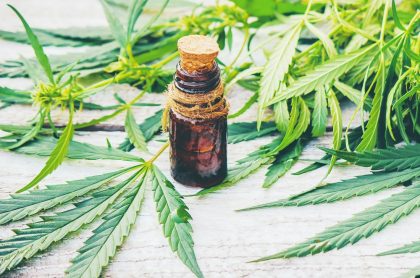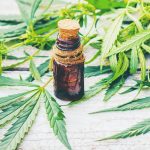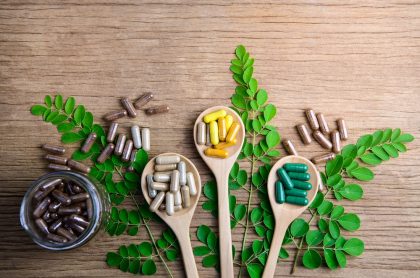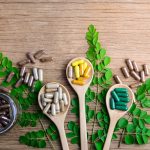The best supplements for your brain’s health
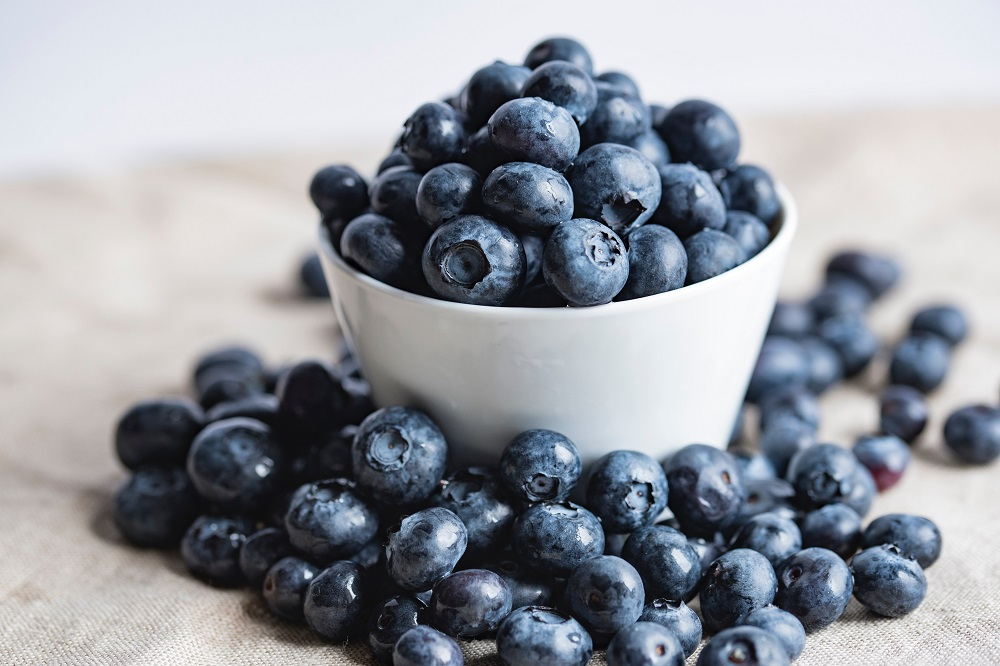
Our current buzzword here at Nature Remedies is “nootropics”, which are essentially natural supplements or drugs that have a beneficial effect on brain health and function. Don’t worry if you haven’t heard of these “smart drugs”, as they are something you can easily add to your daily routine! There are many types of nootropics to try and they work together to help boost memory, motivation, creativity, alertness and general cognitive function. Nootropics can also help reduce age-related declines in brain function, such as dementia or Alzheimer’s disease. If you’re not getting enough brain-boosting supplements from the foods in your diet, you can try out these packaged supplements below.
Fish Oil
Fish oil supplements are a great source of DHA and EPA, which are two types of omega-3 fatty acids. These fatty acids have been linked to many health benefits, including brain health. DHA accounts for around 25% of the total fat found in brain cells and is vital in maintaining the structure and function or the brain. EPA has anti-inflammatory effects that can protect against brain damage and aging.
Vitamin D
A lack of vitamin D has been shown to cause cognitive impairment. Low levels of vitamin D can also lead to depression, which can create a foggy mind. Have you ever heard of Seasonal Affective Disorder or “seasonal depression” in the winter? The lack of sunshine in the winter causes a vitamin D deficiency, which can cause depression. By taking vitamin D supplements – even year-round – you can help combat mental illness and improve your brain function.
Resveratrol
Resveratrol is an antioxidant found in the skin of purple and red fruits like grapes, raspberries and blueberries. You can also find it in red wine, chocolate and peanuts. Some studies have shown that resveratrol could prevent the deterioration of the hippocampus, which is an important part of the brain associated with memory. It has also been shown to improve brain function in general.
Caffeine
This stimulant can be most commonly found in coffee, tea and dark chocolate. You can take a caffeine supplement or easily consume it with these edible sources. Caffeine stimulates the brain and central nervous system, which makes you feel less tired and more alert. It has also been shown to help improve memory, reaction times and general brain function. Be careful consuming too much caffeine, though. Caffeine overload has been shown to cause side effects such as anxiety, nausea and trouble sleeping. It is recommended that most adults stick to around 200-400mg per day, or about 2-4 cups of regular coffee.
Phosphatidylserine
Phosphatidylserine is a fat compound called a phospholipid, which is found in your brain. Studies have shown that taking phosphatidylserine supplements of 100mg three times per day could help reduce age-related decline in brain function. It has also been shown to improve thinking skills and memory.
Acetyl-L-Carnitine
Acetyl-L-Carnitine is an amino acid that is naturally produced in your body and plays an important role in your metabolism, especially in regards to energy production. Taking a supplement version of this amino acid has been shown to make people feel more alert, improve memory and slow down age-related memory loss. It has also been shown in some animal studies to increase learning capacities.
Ginkgo Biloba
Ginkgo Biloba is a tree which can be made into an herbal supplement that is very popular for boosting brain power. It is believed to work by increasing blood flow to the brain and thus improve brain functions such as focus and memory.
Creatine
Creatine is found naturally in the body in muscle and in the brain and is a natural substance that plays an important part in energy metabolism. It can be found in some foods such as meat, fish and eggs, but it is primarily taken a supplement. Creatine supplements have been shown to improve memory and thinking skills in people who do not eat meat, although there isn’t much improvement in brain function for those who do eat meat as they likely already have high enough creatine levels from their diets.
Bacopa Monnieri
Bacopa monnieri is an herb that is used in traditional medicinal practices for improving brain function. It has been shown to improve thinking skills and memory in both healthy people and the elderly. One important note about Bacopa monnieri is that it is only effective with repeated use. It is recommended to take 300mg per day and it generally takes around four to six weeks to see any results. It may cause an upset stomach, so it is also recommended to take this supplement with food.
Rhodiola Rosea
Rhodiola rosea is also an herb, which is used in Chinese medicine to promote general well-being and healthy brain function. It is believed to help improve mental processing by reducing fatigue, such as caffeine does.
S-Adenosyl Methionine
SAMe is a substance that occurs naturally in the body and is used in chemical reactions to make and break down important compounds such as proteins, fats and hormones. It has been shown to enhance the effects of some antidepressants and to reduce the decline in brain function in those who have depression.
The science is still a bit mixed on exactly how helpful Nootropics are, but there isn’t any evidence that they can harm brain health. Try out different ones to see what makes you feel your best, but make sure to run your supplement regimen by your doctor first.
Similar articles
-
Our top tips and tricks to improve your sleep over time
inWith COVID-19 running rampant, holistic health coach Kelly Cohen is here to show you ways to improve your sleep over time.
-
Is there a connection between cancer, diet and CBD?
inAs more and more Americans get sick with cancer, Holistic Cannabis Practitioner Erin Kenney looks at the connection between cancer, diet and CBD.
-
Post-partum recovery: a nutritionist gets back on track!
inPost-partum recovery is never easy, no matter who you are. Follow along this two-part series with nutritionist Stacey Gross on how she managed it.
More in Health
-
Do you really need supplements for a healthy lifestyle?
inMany people regularly ask, “do I really need supplements for a healthy lifestyle?”, and if so, which are the best ones to take?
-
Biohack: how to reap the top health benefits of grounding!
inI’m sure you’ve all heard of grounding, it’s been quite the buzz word recently. But what is it, really, and what are the health benefits of grounding?
-
Discover the power of conscious deep breathing on your health
inBreathing is something the body does without any conscious effort, but the power of conscious deep breathing is definitely no joke!









